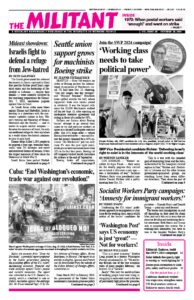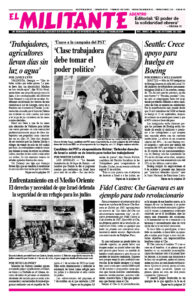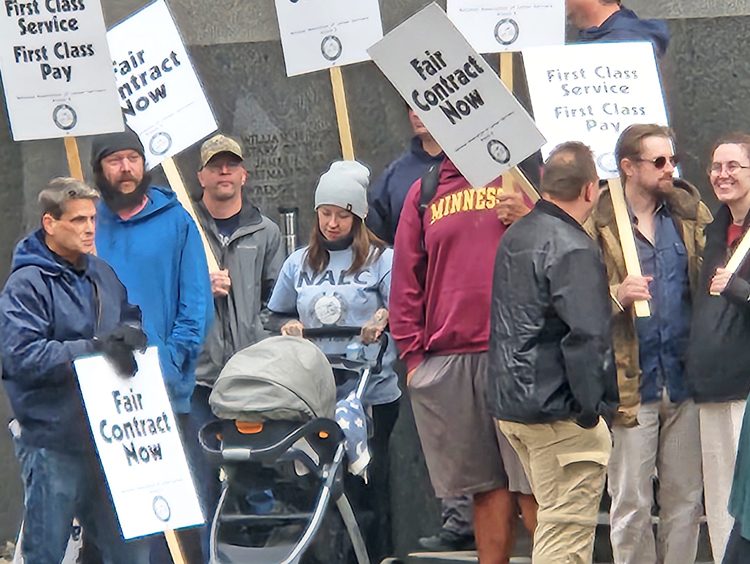MINNEAPOLIS — Close to 100 members of National Association of Letter Carriers Branch 9 and their supporters rallied in front of the main post office here Oct. 14. The action was part of a series of coordinated protests mounted by the union across the country.
The Letter Carriers are one of the three major postal unions, along with the American Postal Workers Union and National Rural Letter Carriers’ Association, fighting for new, improved contracts from the government agency. Because they’re designated by the government as “essential workers,” they’re legally barred from going on strike.
Jorge Quintero, who has worked for the United States Postal Service for four years, described some of the key demands the union is fighting for. “We don’t have enough workers and are forced to work mandatory overtime,” he said.
“It has been 512 days since our contract ran out and we need cost-of-living increases that make up for inflation. It takes 13 years to get to top pay scale and we want this cut to six years. Many casuals quit because they don’t want to work 10- to 12-hour days at $17.25 an hour.”
Ben Noble, a long-time postal worker, described how management uses scanners to monitor letter carriers during their shifts. He also said union grievances can take up to a year to resolve.
Catina Taylor, the president of the Educational Support Professionals of the Minneapolis Federation of Teachers, offered her union’s solidarity with the postal workers’ fight.
At a rally the same day outside the post office in Moline, Illinois, Ross Thorpe, a member of NALC Branch 318, told Our Quad Cities News the long delay in winning a new contract has been really hard on the workers. “Under the old contract, the pay raises and the COLAs and all of that stopped 512 days ago,” he said. COLA wage increases help make up for the ravages of inflation. “I think our last of any kind of COLA was in January of 2023 and then our last general wage increase was like November of 2022.
“We’ve got carriers across the country that qualify for food stamps because they’ve got kids. They have to shower at a Y because they don’t have a house, or they’re living in a car.
“Imagine living in New York, where the cost of living is outrageous, and you’re living on the same pay scale that you had two years ago,” Thorpe said. “I mean, it just doesn’t work.”
Susan Becker, another postal worker at the Minneapolis rally, pointed to the gains they had made when the postal unions went on strike in 1970. “Even though it was then and still is today illegal for postal workers to strike,” she said, “we did strike then and got wage gains and the right to collectively bargain. And we showed the power of what we can do if we stick together.”


